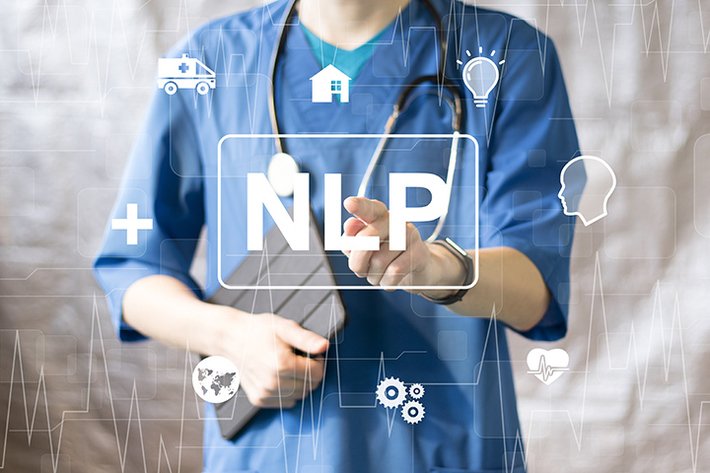Natural language processing (NLP) is a rapidly developing field with the potential to revolutionize the way healthcare is delivered. By extracting insights from electronic health records (EHRs), NLP can help clinicians to make better decisions, improve patient outcomes, and reduce costs.
The future of NLP in healthcare is bright. As the technology continues to evolve, it will become even more powerful and sophisticated. This will lead to new and innovative ways to use NLP to improve the quality of care and lower healthcare costs.
For example, NLP could be used to develop virtual assistants that can provide patients with 24/7 access to medical advice. These assistants could also be used to collect patient data and track patient progress over time. This information could then be used to provide personalized treatment plans and improve patient outcomes.

How is NLP being used in healthcare today?
NLP is already being used in healthcare in a variety of ways. For example, some hospitals are using NLP to identify patients who are at risk for readmission. This information can then be used to target these patients with preventive interventions, such as home visits or phone calls, to reduce the risk of readmission.
NLP is also being used to improve the accuracy of clinical decision support systems. These systems are used to help clinicians make decisions about patient care. By using NLP to extract insights from EHRs, these systems can be made more accurate and efficient.
What are the challenges of NLP in healthcare?
Despite the potential benefits of NLP, there are several challenges that need to be addressed before it can be widely adopted in healthcare. One challenge is the lack of standardized data formats. EHRs are often stored in different formats, which makes it difficult for NLP systems to extract insights from them.
Another challenge is the complexity of medical language. Medical jargon and abbreviations can make it difficult for NLP systems to understand the meaning of text data.
Finally, NLP systems can be expensive to develop and maintain. This can make it difficult for smaller healthcare organizations to adopt NLP technology.

What is NLP in health informatics?
NLP in health informatics is the use of artificial intelligence to extract meaning from unstructured text data in healthcare. This data can include clinical notes, patient surveys, and research papers. NLP can be used to perform a variety of tasks, such as:
- Identifying patients who are at risk for certain diseases
- Tracking patient progress over time
- Identifying potential drug interactions
- Generating personalized treatment plans
- Providing real-time medical advice
- Translating medical records into multiple languages
The future of NLP in healthcare is bright. As the technology continues to evolve, it will overcome the challenges that it faces today and become an essential tool for improving the quality of care and lowering healthcare costs, join our forum here to discuss more natural language processing topics.





Leave a Reply